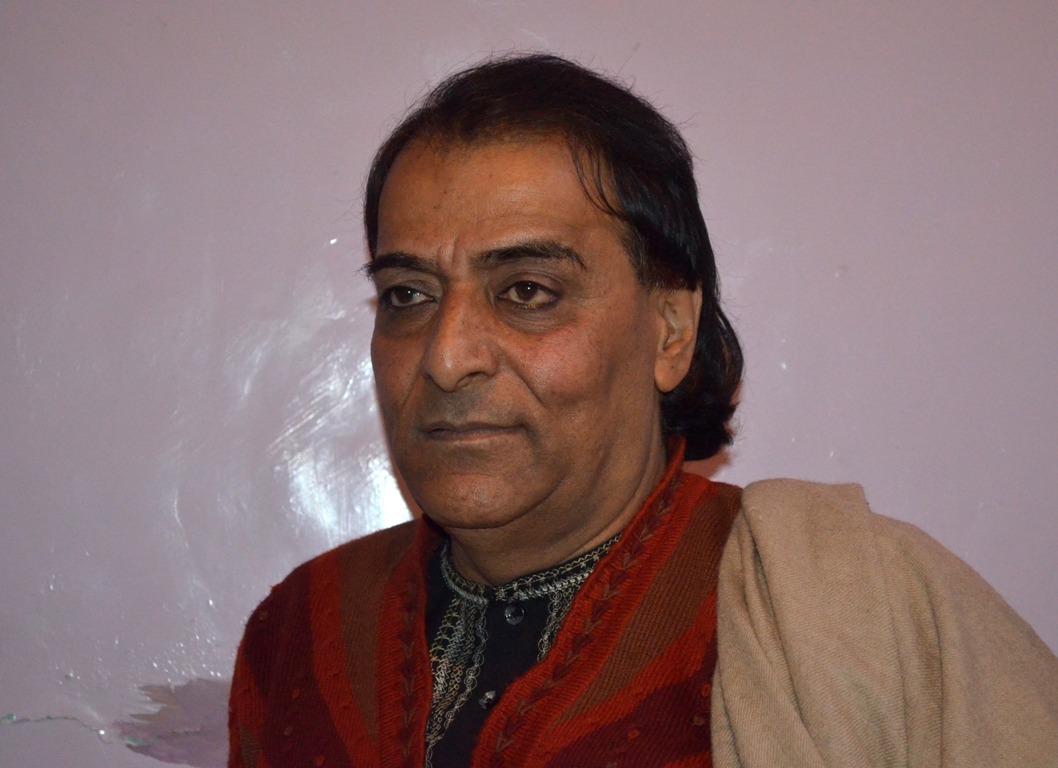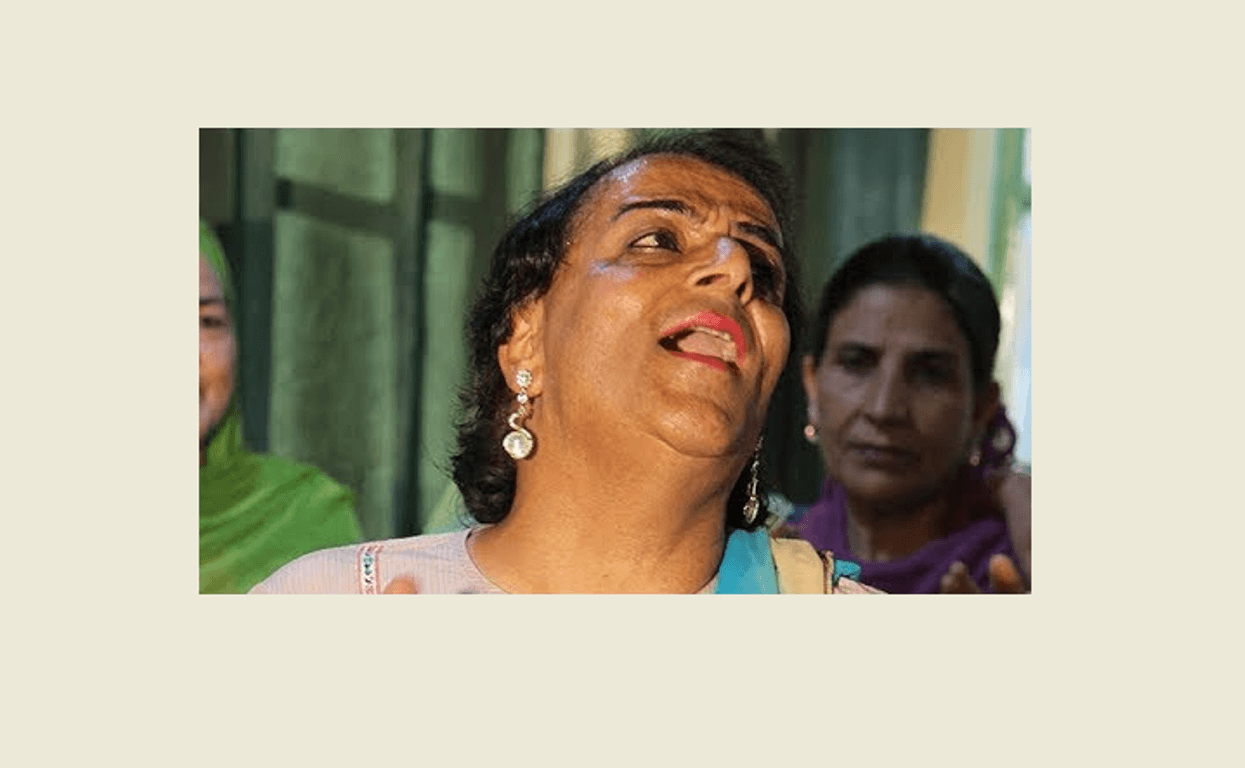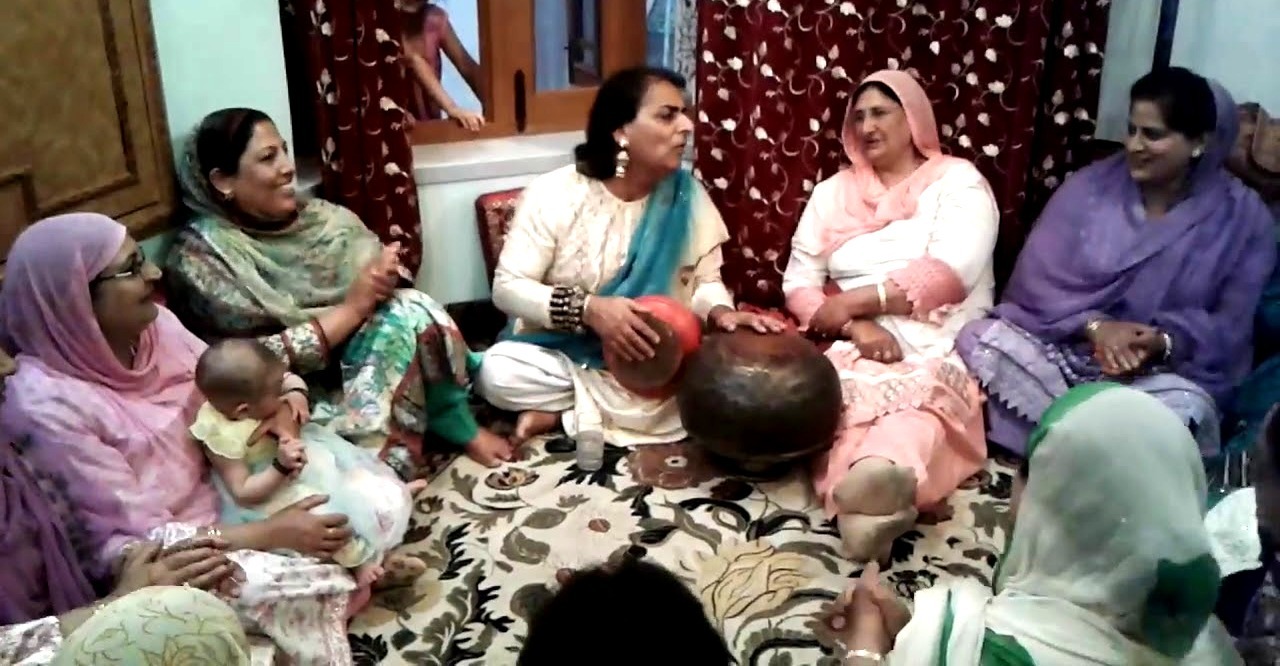The cynosure of contemporary Kashmiri weddings—whose ‘Haye Haye Wasiey’ folksong became the new wedding sensation in Kashmir—might be taking the internet by storm, but he is silently doing what many shirk from doing in a society battered by destitution: taking care of the orphans.
Beyond the brooding faces and wan masonry in Old City’s Nawab Bazaar, a rundown house bereft of medieval charm is reverberating with a sewing machine’s sound. The street outside wears an autumn face, where the machine sound makes for a conspicuous purr. Inside sits the person whose becoming of a social sensation from a conservative ‘son’ is trailed by taunts, teases and tragedy.
Surrounded by positive vibes amid machine vibration, the tailor looks happy. Unlike summers—when he remains the most demanded wedding singer in the town—Reshma works as a nonchalant tailor in winters.
As his room rings with sporadic giggles of a coy bunch of kids, Reshma puts up a typical female face that struggles amid the competing flash of emotions. He blushes and flashes suppressed smiles and girly shy looks in one go. Before he would even admit it, his mannerism leaves nothing unsaid: he looks like a woman trapped in a male body.
But in his late forties, Reshma plays no victim card. While most of his ilk are abandoned by their families and shamed by the society for being the other—the third gender—Reshma’s case is quite unique.
He hasn’t let himself be forced to withdraw from public life and suffer from an existential crisis in the Vale overshadowed by conflict. Reshma hasn’t even taken refuge in matchmaking, the traditional career choice for the third-genders in Kashmir. He has added many feathers in his cap while following his family’s instructions.

Abdul Rashid ‘Reshma’. (FPK Photo/Muneem Farooq Itoo)
Narrating his tale makes him silent at times. His sob story comes only in bits and pieces. Perhaps his traumatized past—full of name-callings, street-teasing and identity crisis—is too hesitant to resurface in the company of a stranger, who wants to tell his story.
As a child, he says, he was a passionate singer but was not able to pursue his career due to family pressure.
“Until I was 25-year-old,” says Reshma, known for his repartee, “I was Abdul Rashid, a tailor by profession, struggling to open myself to the society and trying to become what I was not. I was a female trapped inside a male body. I wanted to be a girl; dress, walk, talk and live like girls.”
Then one day at his tailoring client’s residence at Lal Bazaar, he was made to sing. It was there one Er. Khurshid gave him the name, Reshma.
The name stayed, but the formal singing came much later.
Back home, he was clearly instructed: better concentrate on tailoring. It was his family’s way to keep him away from the street bullies and baddies—known to pester his tribe. Reshma was more than happy to oblige to his family and eventually rose to become the Wastae, the master tailor, in his neighbourhood.
For Abdul Rashid who was yet to attain internet fame as Reshma, it was a big transformation. But his soul urge to sing remained there — until his youngest brother’s marriage threw open a stage for him.
“Suddenly,” says Reshma, flashing animated facial expressions, “I stood up and screamed, ‘if today someone stops me from singing, they will face my wrath.’ And, that was it.”
That night, Reshma sang to his heart’s consent, leaving everyone awestruck with his suppressed yet sensational singing skills.

By the next dawn, life had changed for him. Soon he would sing on marriages of neighbours and relatives. With each performance, he would take home a heap of praises. But despite extols, he wanted to strictly confine singing as his passion pursuit only. But then tragedy struck, and his passion became his profession.
His younger brother’s sudden death changed everything for him. The departed sibling had left behind a family of four kids and wife. During that shattering crisis, Reshma volunteered to be the caretaker of his late sibling’s family.
For putting enough food on his adopted family’s table, he became a cross-dresser sans wearing loud makeup before going to sing at marriage functions.
With each performance, his singing prowess would make him the wedding attraction in the town and the internet sensation of Kashmir.
His wedding songs have already hit more than two million views on Youtube alone, plus his song clippings can be seen everywhere, making Reshma a household name. Among his groovy numbers, Haye Haye Wasiey remains the thrilling score.
“This song is my own creation,” says Reshma, lowering his gaze to hide a sudden surge of shyness. The song has some complicated yet amusing lyrics, which even Reshma doesn’t understand, but leaves his fans in fits of laughter.
But the sad part remains that he is hardly getting anything from the online promotion, where the Youtube bloggers mint upon his talents.
His growing publicity however hasn’t come in his way of work. He still prefers to sing at low profile marriages over a rich fat wedding. The past summer also saw him performing at a number of weddings of Kashmiri Pandits living in Delhi.

“I sing because I love singing,” he says. “I sing to spread happiness and joy.” At times, he pushes hard only to earn some extra bucks for his adopted kids and ends up returning home sick from wedding functions.
But when not singing, Reshma follows a regiment routine. An early riser, he offers prayers before going out for a brisk morning walk and comes back to resume his daily schedule.
On Fridays, he visits his brotherhood community—with whom he goes and offers congregational prayers in the Hazratbal shrine lawn. After prayers, they hold long conversations, revolving around the societal stigma towards their community.
‘Our community must be lead by an example,’ Reshma often tells his brothers inside the lawn. ‘We should get education and step into different professions that the third gender community is doing in other parts of the world. If they can do it, why not us?’
The ‘boost talk’ ends with a vow to meet again – the same place, the same day.
Once he steps back in his locality, Reshma is respected for his devout and humanist nature. Much of that respect stems from the fact that his priority remains the orphan kids. For them, he is even willing to work as a tailor throughout his life, if his singing skills somehow fade away with time.
Note: The word ‘He’ has been used for Abdul Rashid ‘Reshma’ because he prefers it that way.







